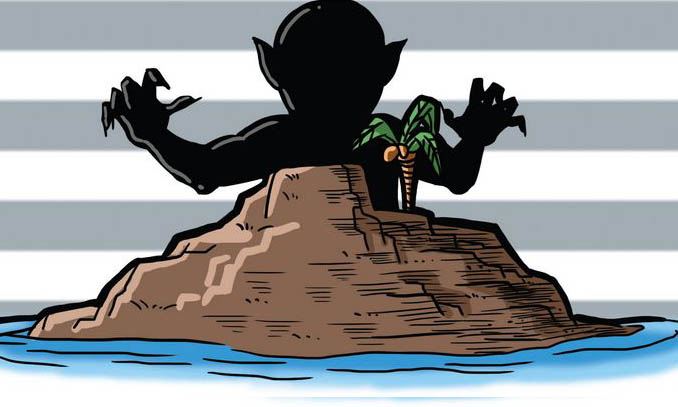Cross-Straits unity vital to defend Chinese interests over Diaoyu

Foxconn president Terry Gou recently told Japanese media that he wishes to purchase the Diaoyu Islands and jointly develop the islands with the Japanese. Gou's comment has won support from some pro-independence activists in Taiwan, as they believe an alliance with the Japanese is a good way to counter the Chinese mainland. But he was also criticized for being naïve by many other Taiwanese.
In fact, anyone who has some basic understanding of the dispute will find Gou's comments are more than just naïve. His siding with the Japanese may in the end cost himself dearly.
Besides, Gou's intention to purchase the Diaoyu Islands indicates that he already sees the Japanese as the owner of islands. This obviously contradicts both the mainland and Taiwan authorities' claim that the islands belong to China.
The Japanese way of dealing with the Diaoyu Islands dispute has been unreasonable. They want to swallow the whole of the islands, and have not only encouraged right-wing activists to use extreme methods to seize the islands, but have also been playing a delaying strategy when negotiating over the islands' fishing and drilling rights with China.
What's more disturbing is the reaction from the pro-independence faction in Taiwan since it rose to power. Former Taiwanese leader Lee Teng-hui has openly stated that the Diaoyu Islands belong to Japan, while Annette Lu, former "vice president" of Taiwan, even once thanked the Japanese for signing the Treaty of Maguan in 1895, which deprived China of both Taiwan and the Diaoyu Islands.
From August 1996 to February 2009, Taiwan had 16 meetings with the Japanese over fishing rights in the Diaoyu Islands. But since Taiwan leaders deliberately skipped the sovereignty issue, it gave the Japanese the chance to claim the islands as their own and then offered extremely tough conditions for the Taiwanese fishermen.
In 2011, Taiwanese leader Ma Ying-jeou tried to restart the negotiation, but only found cold responses from the Japanese side.
Such lack of progress indicates that fishing rights are closely linked to sovereignty, and this also applies to drilling rights.
According to Article 56 of the UN Convention on the Law of the Sea, coastal states have, in their exclusive economic zones, "sovereign rights for the purpose of exploring and exploiting, conserving and managing the natural resources […] of the waters superjacent to the seabed and of the seabed and its subsoil." Thus, the Diaoyu Islands' sovereignty needs to be settled by international rules and laws first, so that further progress can be made regarding fishing and drilling rights there.
Authorities across the Taiwan Straits should build on their current friendly relationship and work together in defending the Diaoyu Islands' sovereignty and Chinese's rights and interests in the islands.
Through these cross-Straits cooperations, the Diaoyu Islands' sovereignty and Chinese people's rights and interests there will be better protected, eventually leading to a peaceful and multi-beneficial development scenario.
The author is an assistant professor of Fo Guang University and a former deputy secretary-general of the New Party in Taiwan. opinion@globaltimes.com.cn
Sinophobia gives Ishihara public boost
Experts’ Views on the Diaoyu Islands dispute